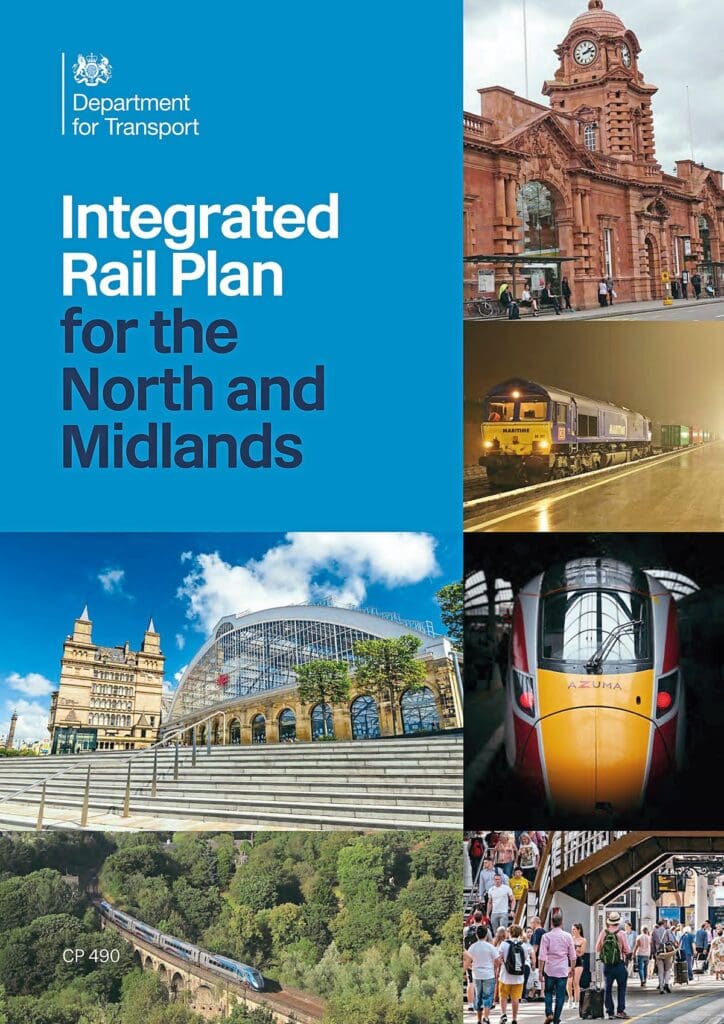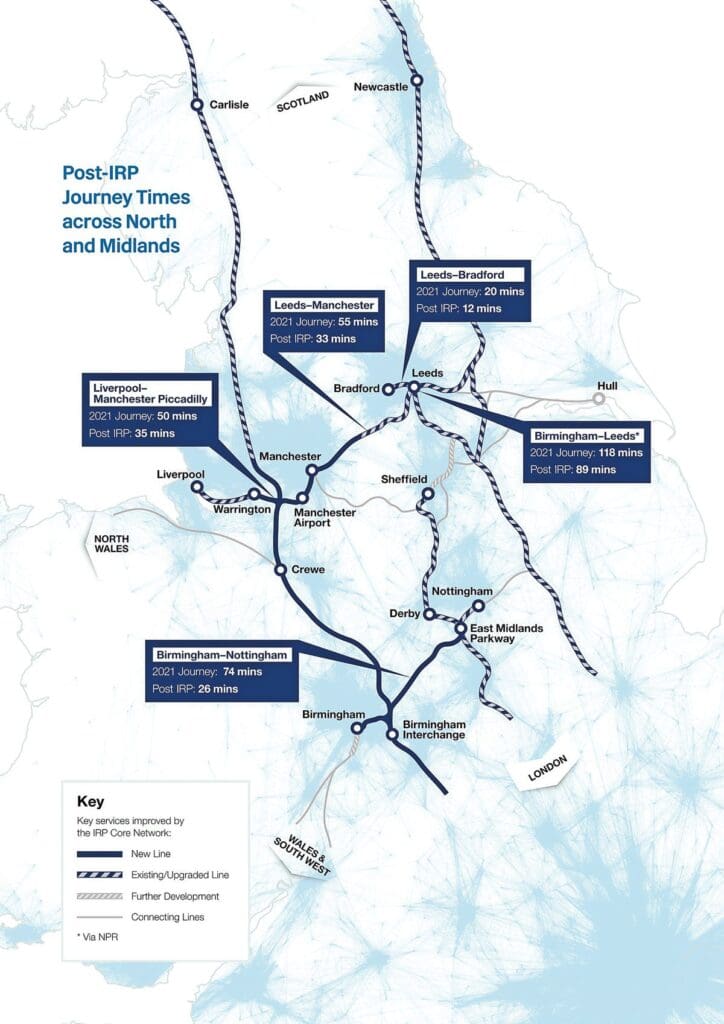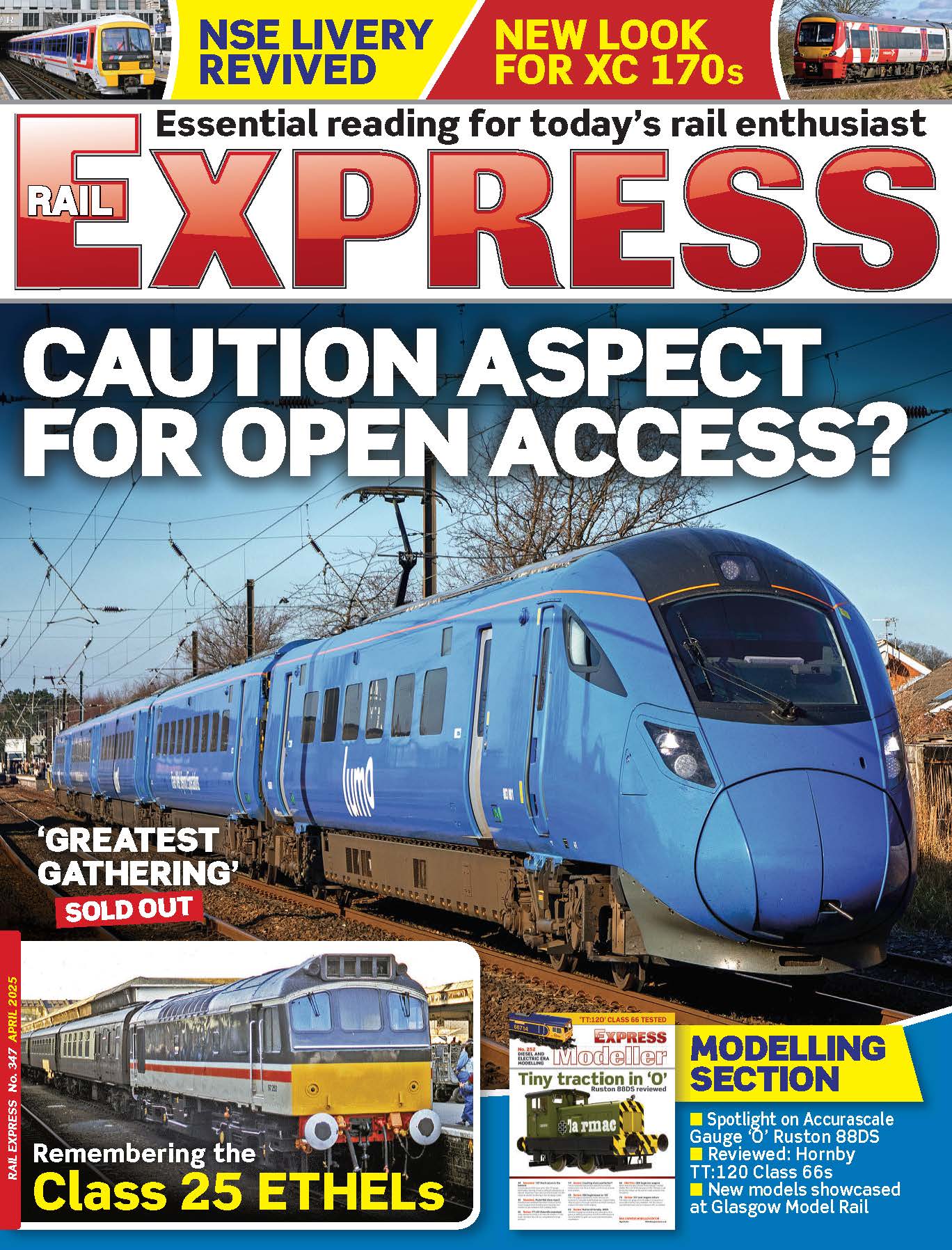While HS2’s eastern leg is scrapped (for now), full MML electrification and a faster ECML are planned instead.
The Government’s Integrated Rail Plan covering future investment in the rail network in the Midlands and Northern England, published on November 18, drew a mixed reaction from the industry. Overall, £96bn of funding has been allocated, of which £42bn was already accounted for by HS2 Phases 1 and 2a, leaving £54bn of additional investment.

The widely leaked decision to formally not progress with the eastern leg of HS2 beyond East Midlands Parkway drew the most negative headlines, along with the fact that Northern Power Rail (NPR) routes are to be scaled back.
Enjoy more Rail Express Magazine reading every month.
Click here to subscribe & save.
However, 110 miles of high-speed infrastructure has been authorised that includes a Trans Pennine section between Warrington and Marsden. Improvements to the conventional network include the long promised (and never delivered) full electrification of the Midland Main Line to Sheffield and route improvements, including 140mph running, on the East Coast Main Line (also previously promised and not delivered). An urban mass transit network will be provided in West Yorkshire, centred on Leeds, to help relieve local capacity.

The document focuses on journey times (see graphic, above right), rather than capacity, and suggests improvements will take place sooner, though the summary table shows that delivery of the first tranche of improvements is around a decade away, with realisation of everything outlined in the IRP unlikely to occur until well into the 2040s.
Integrated Rail Plan in Brief
■ Investment: £96bn (including £42bn already allocated)
■ Loss: HS2 eastern leg (East Midlands Parkway to Leeds) shelved
■ Loss: Some Northern Powerhouse Rail routes scaled back
■ Gain: 110 miles of high speed line, including Warrington-Marsden
■ Gain: Full electrification of MML to Derby, Nottingham and Sheffield
■ Gain: Route improvements to ECML, including 140mph running
■ Gain: New West Yorkshire Metro light rail network, centred on Leeds
■ Delivery: 2030ish to mid-2040s




